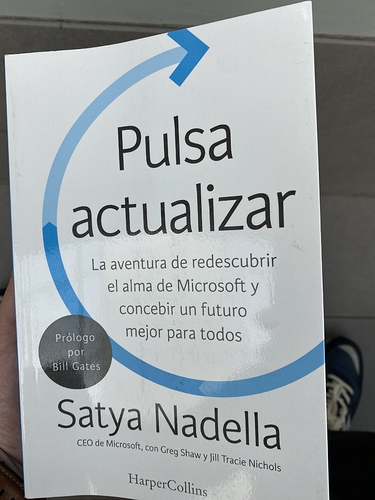Terminando ya el libro de Satya Nadella, CEO de Microsoft. La verdad que es muy recomendable, cuesta creer que esté disponible por menos de 6€ en tapa blanda.
Entender como le cambiaron la vida ciertos acontecimientos y el marco mental que adoptó para crecer, es realmente inspirador.

